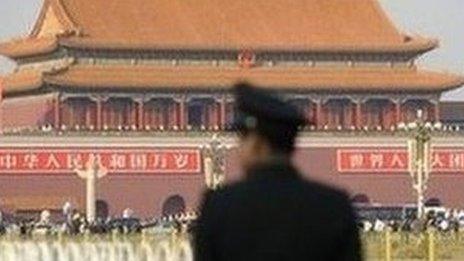Children denied an identity under China's one-child policy
- Published
The BBC's Celia Hatton reports on the sanctions and fines families face for breaking China's strict family planning laws
Right in the centre of the tiny farming village of Beigaoli, in eastern China's Shandong province, lies a cheery local kindergarten. Most of the village children attend classes here every day for free, singing songs and making use of the outdoor swing set.
But the parents of one three-year-old had to bribe the kindergarten's teachers to allow him to attend.
Zhang Rundong is a little boy with big eyes and a serious expression, standing on the edge of the noisy group of children. He is the Zhang family's illegal second son, born in violation of the country's one-child policy.
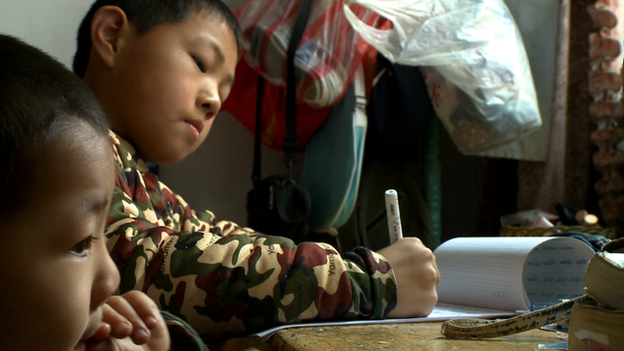
The Zhang's second son cannot access government services because he was not issued an identity card
In retaliation for the boy's birth, officials are withholding his identity papers. Without them, he cannot access healthcare or free education, travel within his country or even use a library.
This month, China's one-child policy was relaxed, allowing some couples to have two children. But nothing has changed for an estimated 10-20 million children already born in violation of the original policy.
In their simple home, the Zhangs detailed their ongoing battle with the local officials, starting with the failure of Mrs Zhang's government-mandated birth control.
"I was scared when I found out I was pregnant again," she said. "Of course, I was a little bit happy too. So I didn't want the other villagers to find out and force me to abort the baby."
Following their son's secret birth, the couple borrowed from friends and relatives to pay a fine totalling almost $10,000 (£6,100). Across China, more than $3.3bn in similar fines were paid by families in the year 2012 alone - though it is unclear where that money ends up. Critics believe the fines are used as extra income for local governments.
The Zhangs showed the BBC receipts from the payment of their fines from the local Communist officials, but they did not appear to be official government documents. Instead, the receipts were handwritten on small slips of paper, illustrating the arbitrary nature of the party's punishment system.
In some parts of China, those who violate the one-child policy pay a fine, which they can sometimes reduce after negotiating with local officials before receiving their child's identity papers. Others, like the Zhangs, are not so lucky.
The family's fine has been paid, but that is still not enough for local officials.
Secret audio recordings, they allege, reveal the Beigaoli village party chief's additional demands: Mrs Zhang must also be sterilised.
The couple do not want any more children, but they are refusing the procedure, arguing that it violates their basic rights.
"Many women have been sterilised by force," Mrs Zhang explains. "We are scared officials will detain me and make me have the operation if my husband leaves the house."
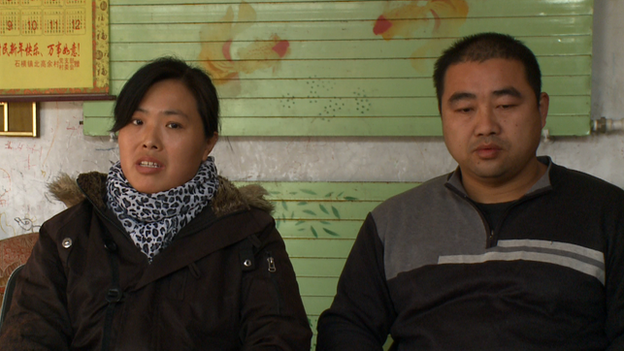
Mr and Mrs Zhang say they have an ongoing battle with local officials
The BBC crew visited the village's family planning office, but no one was available to speak to us. Repeated interview requests were ignored.
'I will appeal'
Almost 500km (310 miles) to the north of Beigaoli, another mother is also demanding answers.
On the northern outskirts of Beijing, Liu Fei is also fighting local officials in her area to relinquish her son's identity papers. Her eight-year-old does not even have a birth certificate, although for now, Ms Liu has found a school that will allow him to attend classes.
Liu Fei received an unusually harsh punishment after having her second child in her second marriage. Because her second husband also had one child, the government is treating Ms Liu as if she has had three children of her own. She faces a $54,000 fine that is 14 times her annual salary as a warehouse worker.
"I'll never be able to pay it off in this lifetime," Liu Fei told the BBC, before bursting into tears.
So this widow is suing the local authorities - something that is almost unheard of in China.
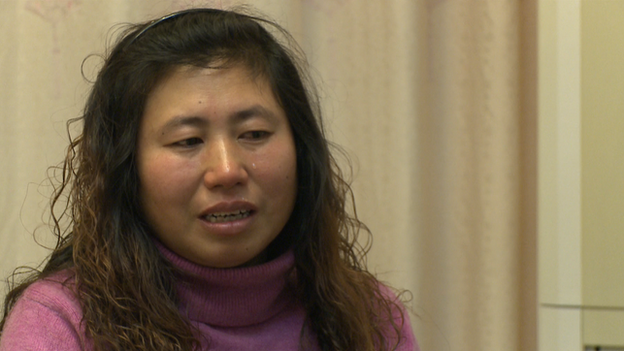
Liu Fei, who works as a warehouse worker, faces a fine that is 14 times her annual salary
"If no specific government law denies my son an identity before I pay the fine, he should receive one," she explains. "If they don't give him that, I will appeal."
Ms Liu and her lawyer believe it is illegal for the Beijing government to deny a child's identity papers until the one-child policy fine has been paid. The Beijing court is expected to issue its decision on the case within the next week.
It is a case that could set a precedent for millions in the same situation, though most agree there is little hope the Liu family will win; little promise that this boy's legal right to exist will be separated from his mother's battles with the government.
- Published9 January 2014
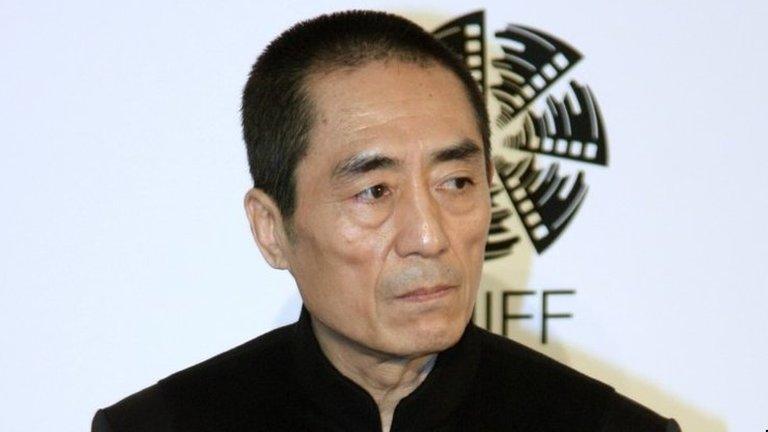
- Published28 December 2013
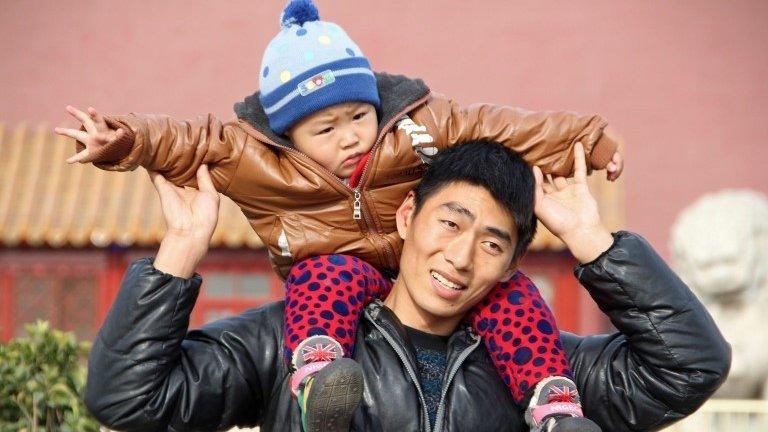
- Published22 November 2013
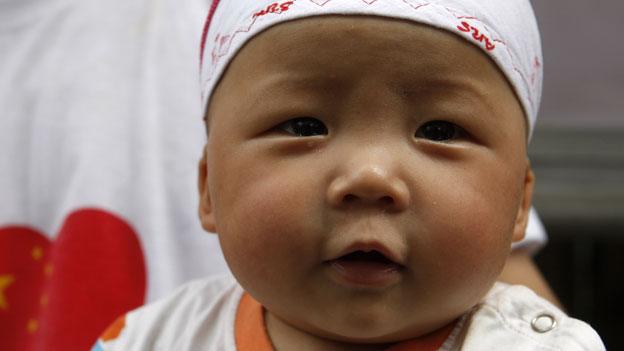
- Published19 November 2013
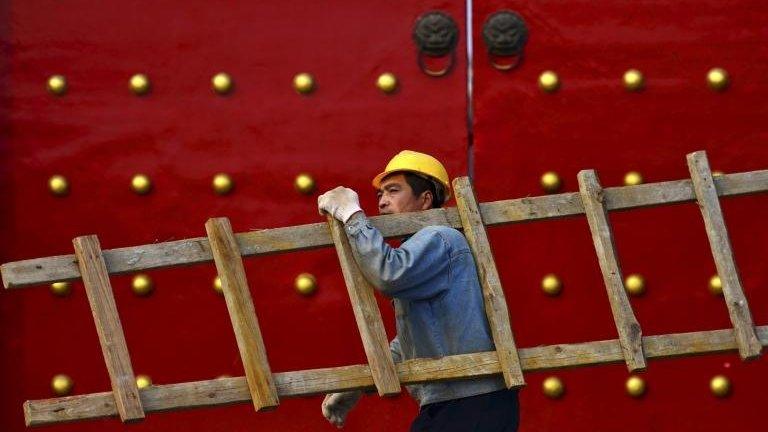
- Published18 November 2013
